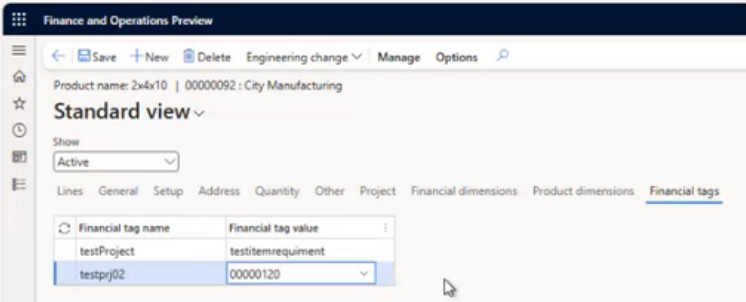Note
Access to this page requires authorization. You can try signing in or changing directories.
Access to this page requires authorization. You can try changing directories.
| Enabled for | Public preview | General availability |
|---|---|---|
| Users by admins, makers, or analysts | - |  Jun 6, 2025
Jun 6, 2025 |
Business value
Financial tags help organizations track user-defined fields on accounting entries posted to the general ledger. With financial tags, you don't need to create financial dimensions that contain values you can't reuse.
Use financial tag values for reporting. For example, create a financial tag to track time and expenses related to an initiative without needing a unique financial dimension.
Feature details
The general ledger stores financial tags that you define for accounting entries you post to the general ledger. You define the financial tag names, so data entry clerks have clear guidance about the expected data in each field. By default, the system doesn't validate or enter financial tag values. Enter tags on the journals, and they flow through to the invoice.
In this release, you can add tags to many common project accounting documents and processes. The first supported documents are project journals and sales orders. Tags flow through from document posting to invoicing.

Additional resources
Use financial tags for project financial transactions (docs)